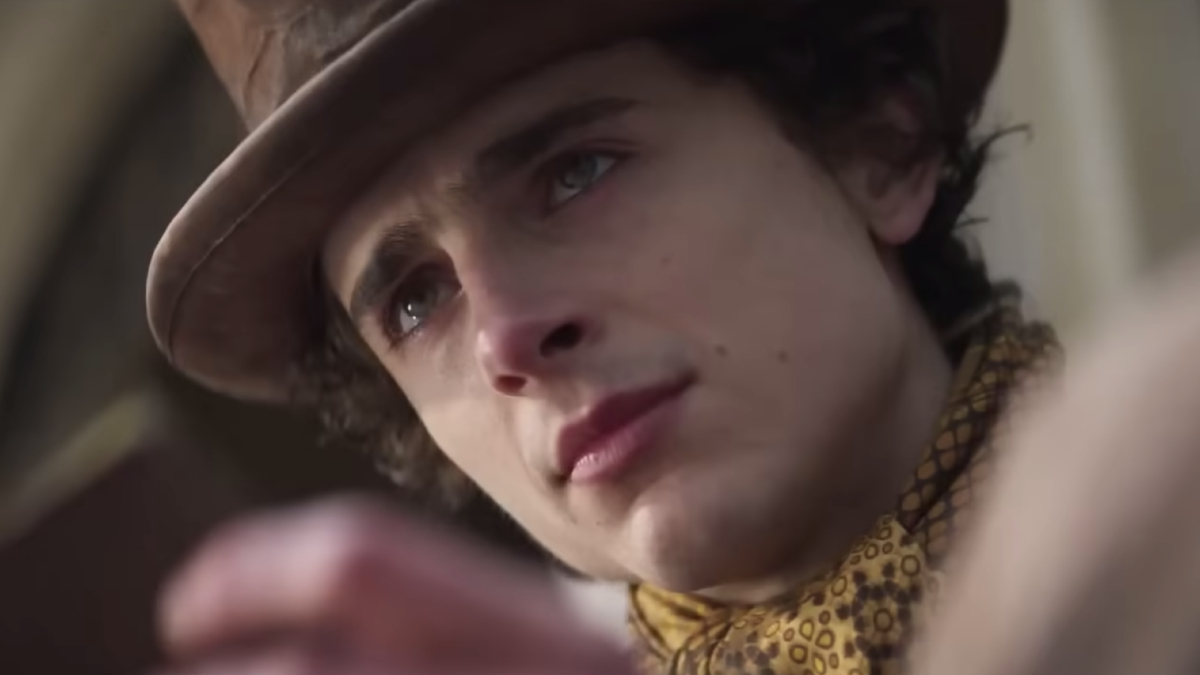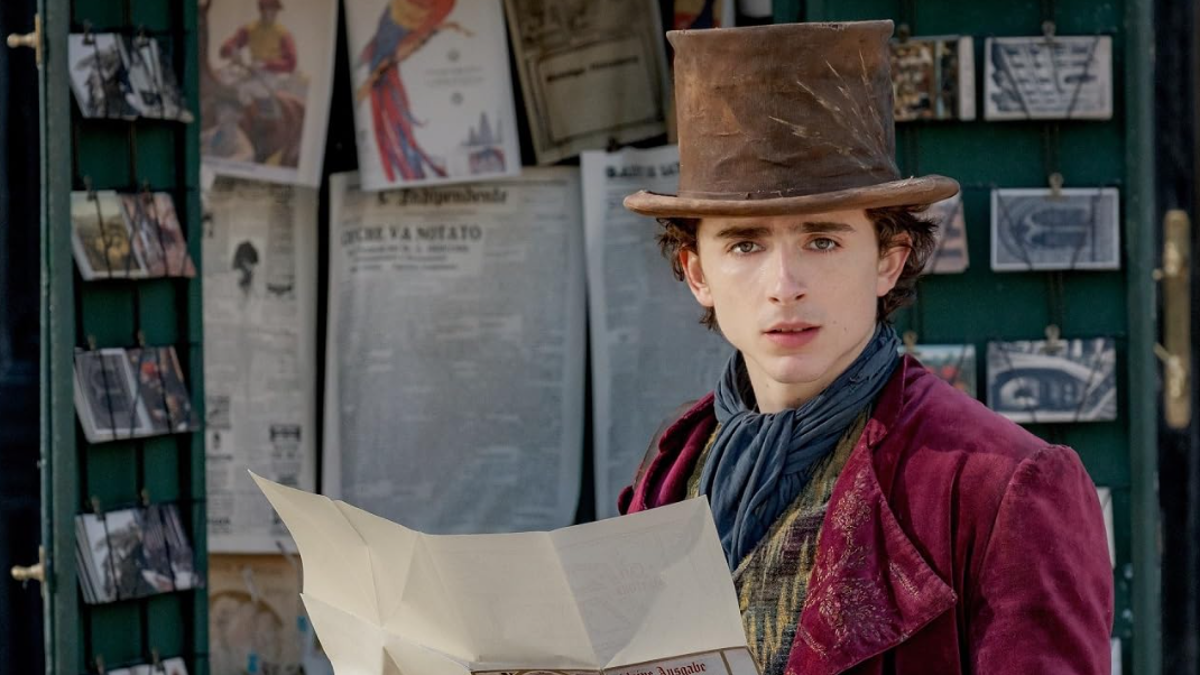
Wonka, a prequel movie based on Roald Dahl’s 1964 novel Charlie & The Chocolate Factory, follows a young, wide-eyed Willy Wonka (played by Timothée Chalamet) as he travels to a new country and attempts to establish himself as a successful chocolatier. But quickly, the road to success turns out to be not as easy as Wonka thought, as he becomes embroiled in a battle for dominance with the “Chocolate Cartel” — a group of established chocolate sellers who drive any competition out of town for good.
Along the way, Wonka uses his goodwill and inventiveness to make friends — notably with Noodle, an orphaned girl, and several others who work as indentured servants after being tricked during a rent agreement by vicious landlords, Mrs. Scrubbit and Bleacher. It is soon revealed that the young Wonka is illiterate, and had naively signed a contract for room and board without reading the small print.
By the film’s end, Wonka and his newfound friends defeat the Cartel by exposing its ringleader, Arthur Slugworth, after finding an accounting book that reveals he committed mass financial fraud. After using reverse psychology to trick the Cartel into eating chocolates that cause the consumer to levitate, under the guise of a false present to the Oompa-Loompa, they manage to escape drowning in a river of chocolate. The Oompa-Loompa, who is owed cocoa by Wonka after taking them from his home island, arrives just in time to rescue Wonka, who is still indebted to him.
Willy manages to track down Noodle’s living mother, which he was able to do after she had taught him to read during their attempt to take down the Cartel. After their heist proved successful, Wonka opens a bar of chocolate made years ago by his late mother. Now able to read for himself, he discovers a note from his mother, which reads that it is not the chocolate that matters, it is who he shares it with. Willy breaks off the chocolate bar and gives some to Noodle, before setting off to establish his chocolate business – in a final, magical sequence that makes some major callbacks to the Willy Wonka audiences are familiar with.
Wonka’s last scene, explained

Timothée Chalamet has stated during Wonka interviews that the new film is a “companion piece” to the 1971 film, Willy Wonka & The Chocolate Factory, starring Gene Wilder as the titular character. It is not, as previously thought, a blend between the Tim Burton remake and the original film. The film’s final sequence makes it very clear that Chalamet is playing a younger version of the character Gene Wilder made famous. The 2005 take on the Roald Dahl novel has always been divisive, and the late Wilder openly disliked Johnny Depp’s portrayal of Willy Wonka.
Wonka does suggest earlier in the film that it has direct ties to the 1971 film, as Hugh Grant’s Oompa-Loompa has the same look as the Oompa-Loompas in Wilder’s version — most notably the orange skin and green hair. Willy can also be seen taking a bite of a teacup during the opening of his first chocolate shop, which is a joke originated by Wilder.
However, by the final sequence, the comparisons are more than simply paying homage. Willy Wonka, with an Oompa-Loompa now working for him, finds an abandoned castle to start a chocolate factory inside. At this point, Chalamet’s character sings “Pure Imagination”, the signature song of Willy Wonka & The Chocolate Factory, originally written for the 1971 film.
“Pure Imagination” was used in the original film when the golden ticket holders visiting the factory first saw the unbelievable inner world of the chocolate factory — a magical garden entirely made of edible chocolate. As Chalamet sings, an almost exact replica of this garden appears all around him.
As he learned by the film’s conclusion, Wonka’s vision of a chocolate factory is all about pursuing the wildest dreams imaginable, as reflected in the song’s lyrics. Moreover, it is about having faith — particularly in others — in realizing that dream, and not giving up. As Wonka’s version of the chocolate business is much more humanitarian than that of the Cartel, it is more beautiful than anything seen in the film, ending on a hopeful note.
A post-credits scene makes a nod to another Roald Dahl novel, The Twits. After being arrested for their abuse of tenants, Mrs. Scrubbit and Bleacher eat some faulty chocolate by Wonka, which causes them to grow scraggly hair, resembling that of the illustrations of Mr. and Mrs. Twit.
from Movie News | Movie Reviews | Movie Trailers https://ift.tt/YUOzk4G
0 comments: